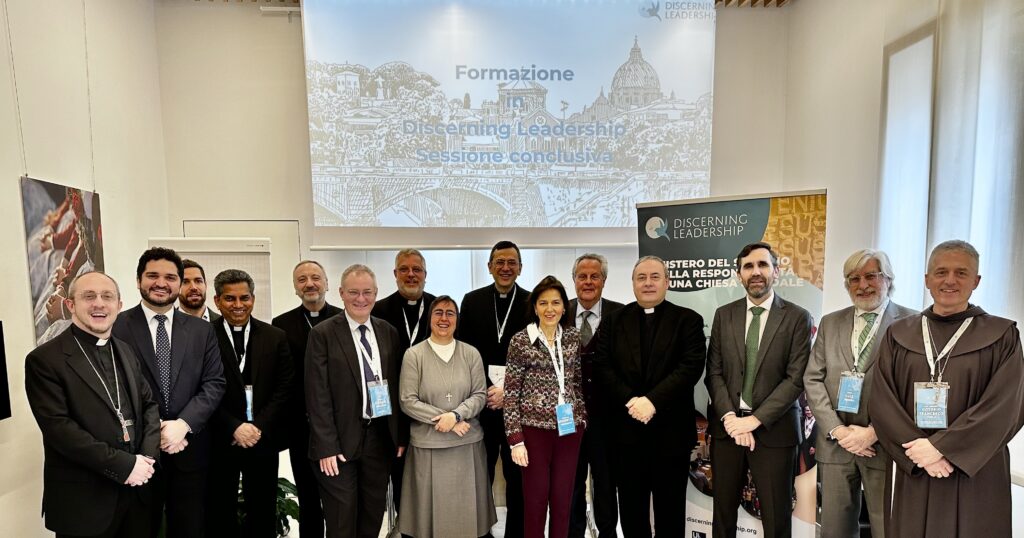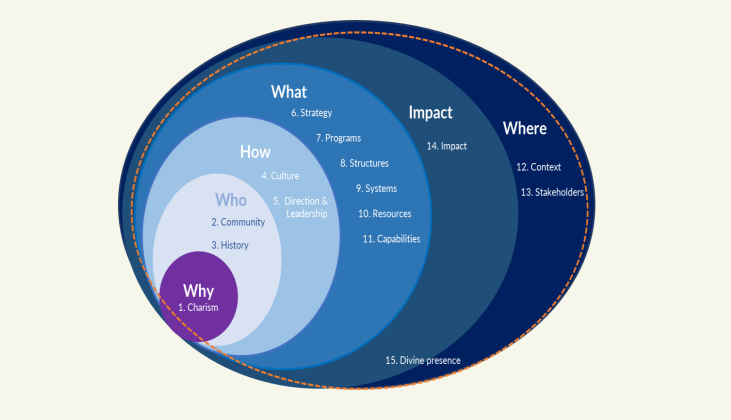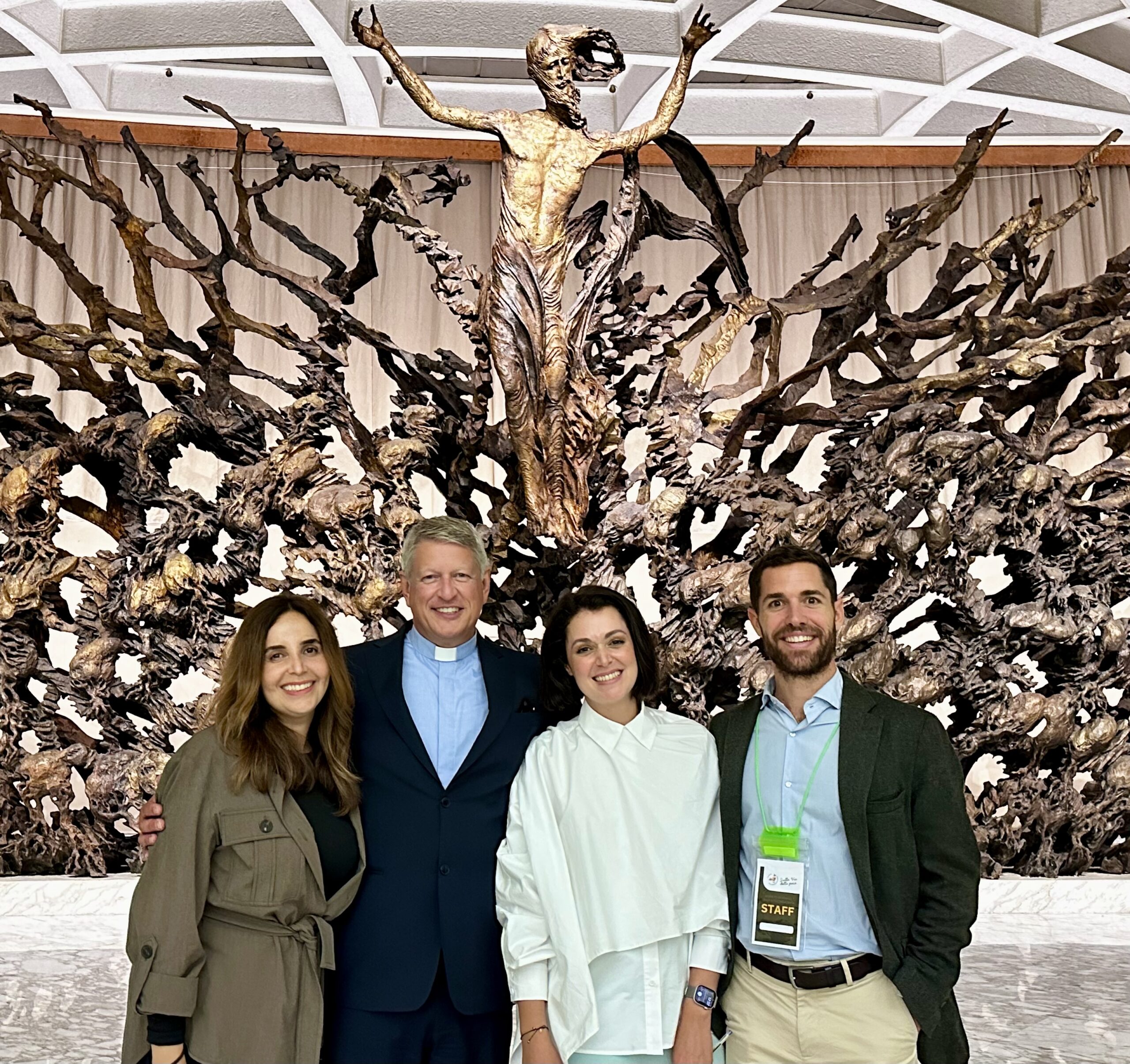When you have been selected to serve as a secretary, the #2 role of responsibility in the Dicasteries of the Vatican Curia, you might wonder what there is left to learn?

But in fact, it turns out, there is always more to learn about leadership, especially in the most senior posts within such a distinct and complex institution, where bureaucracy and the mission of evangelization are not always easily integrated and challenges abound.
After nearly two years of planning, the Discerning Leadership Program, at the invitation of Mr. Luis Herrera, Director of Human Resources, and Ms. Benedetta Persichetti, Responsible for Formation, of the Secretariat for the Economy, provided a six-session series for fourteen of the twenty five “responsibles” who serve in this executive role. The course was conducted by Fr. Giacomo Costa SJ, the special consultant to the Secretariat of the Synod, Mr. Paolo Foglizzo, an editor of Aggiornamenti Sociali, and Ms. Daniela Bernardini, Business Planning & Operations from Oracle. To participants’ delight, the course was held in the tranquil setting of the Casa Santa Maria the Patroness of Bavaria, in Monte Mario, Rome, and hosted by three sisters from the Istituto Suore del Bell’Amore.
The goals of the series were to foster collegial relationships between and amongst the Secretaries, to support the reform of the Roman Curia according to the Apostolic Constitution, Predicate Evangelium, and provide development for the skills needed for advancing the operations of the Curia in ways defined by the mission and in a “synodal” way of proceeding. Some of these skills included giving feedback and providing supervision, the identification and management of polarities (generative tensions), and the exercise of discernment in common.
The whole course was built on an integral model of formation that attends to the work of leadership, not only in the skills and competencies of managing people, but also in the spirit and mindset of a leader who is first a disciple of Christ. For this reason, participants expressed appreciation for the way in which this leadership development attends to their distinctive context and roles and is rooted in the spirituality and example of Jesus’ exercise of authority in the Gospels. This formation begins with self-awareness, and extends into the interpersonal work of managing relationships and tasks, and the strategic service of both the universal and local Churches.
What did participants have to say about their experience? Many of them remarked how important it was first and foremost to come to know one another, and to have a place to reflect with one another about the realities of their roles and responsibilities.
“Time for this kind of reflection is hard to come by in our day to day lives yet is it essential for taking up our work in a ‘discerning way,’ and not simply reactively.”
All the participants spoke of how they valued this new sense of being a peer group in the service of a shared mission, and their appreciation for a “safe space” of open, constructive conversation.
Observing the interactions of the group, Fr. David McCallum SJ noticed how the members came to a deeper awareness and appreciation of the complementarity of their vocations as clergy, religious, and lay people, and were energized by their shared commitment to the work of the Church.
“One of the things the participants appreciated most was the chance not only to pray with one another, but also to share the fruits of their prayer, and the insights that came to them as they contemplated the relationship between the examples of Jesus leading his disciples, and their own leadership.”
Regarding the development of skills and personal growth, one member commented,
“I learned how to listen more carefully. I came to a deeper understanding of my role as a leader and more confidence in the way that I take it up.”
Several others emphasized new appreciation for the quality of listening and its importance in the ways the participants read situations and make decisions.
Another remarked,
“I had the opportunity to face the challenges of a particular situation from the perspective of my life in the Spirit, and so, the way forward is more creative, less self-referential than it might have been. So, I am learning how important it is to lead and make decisions in a state of consolation.”
Among the many “lenses” or new ways of seeing their realities, and the “tools” that the participants appreciated was the synodal practice of making decisions in a more consultative and co-creative manner. One member of the group remarked,
“It did not lessen my authority, but instead, I used my authority to convene people for consultation, to harmonize their input, and to take the decision. The result was better than anything that I would have done on my own.”
Stay tuned for updates, as the Secretariat for the Economy and the group have asked for eight more sessions this year, with the hope of expanding the program for others.




